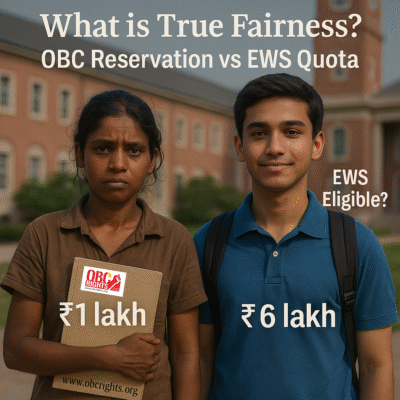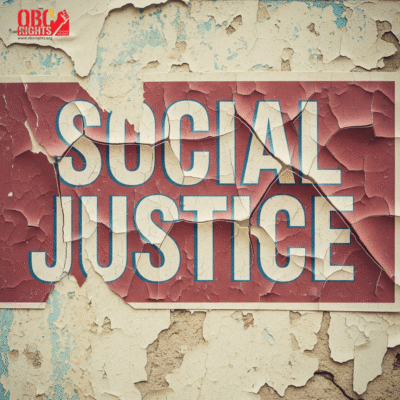The debate around OBC Reservation vs EWS Quota has taken center stage in India’s reservation discourse. At first glance, it appears to be a battle between caste-based justice and income-based opportunity. But the real question is deeper, Can both systems work together to serve India’s poorest, including the neglected youth within the OBC communities?
Today, we explore this complex issue—not to deepen divides, but to ask whether fairness in policy can truly be achieved without inclusion across both social and economic lines.
Understanding the Two Frameworks of Inclusion
What Sets Them Apart?
OBC reservation is grounded in centuries of social exclusion. It is not caste-based, but aimed at correcting historical injustices and providing representation to backward communities. The Mandal Commission, constitutional provisions, and the lived experiences of millions validate this need.
EWS (Economically Weaker Sections), on the other hand, was introduced in 2019 to support poor individuals from forward castes—excluding SC, ST, and OBC groups. It is purely economic in nature and provides a 10% reservation based on income, property, and family background.
Are They Really Mutually Exclusive?
This brings us to a critical question, OBC Reservation vs EWS Quota, Competing or Complementary?
Contrary to what many believe, economic weakness is not limited to the backward castes. There are thousands of poor OBC families—daily wage workers, landless laborers, and first-generation learners—who are often more deprived than the beneficiaries of the EWS quota.
Yet these OBC youth, despite meeting every economic criterion, are barred from the EWS quota simply because they already qualify under the “OBC” tag. This creates an unfair situation where poverty within backward communities is overlooked. More than all, the OBC quota 27% given to them is not yet fully complied with, and only 18-19% has been given. When the OBC population is more than 50% and the given quota too is not fulfilled, going for Economically Weaker Reservation is unjustified.
The Case for Including Poor OBCs in the EWS Quota
India’s Constitution promises equality—not just in letter, but in spirit. If EWS truly means the economically weaker sections, then why exclude poor OBCs?
Consider this: a forward community student with ₹6 lakhs annual family income qualifies for EWS. But an OBC student from a village, with ₹1 lakh income, cannot. This isn’t justice—it’s policy blind to intersectional poverty.
Including economically weak OBCs in the EWS quota wouldn’t weaken existing reservations—it would make the system more equitable. They wouldn’t claim dual benefits in the same seat category. They would simply have the right to choose the quota that reflects their actual disadvantage.
This is where the OBC Reservation vs EWS Quota debate shifts from being a competition to a conversation about inclusive fairness.

A New Reservation Vision
To move forward, we need three things:
- Reform: Introduce economic sub-categorization within OBCs to ensure intra-group equity.
- Recognition: Acknowledge that poverty is not caste-exclusive. A poor OBC student deserves EWS access just like a poor upper-caste student.
- Representation: Use data to track who benefits from reservations and ensure that no group, especially within OBCs, is left behind or neglected.
- By doing this, we break the false binary of caste versus class and move toward a reservation policy rooted in both historical justice and current economic realities.
Final Call: Towards a Fairer Future
Reservation should empower the truly disadvantaged, not limit them based on outdated categories. If a poor OBC student meets every EWS criterion, denying her access isn’t policy—it’s injustice dressed as fairness. Justice cannot be selective.
We must stop treating caste and poverty as competing forces. A truly inclusive system must recognize both and act accordingly.
It’s time to rewrite the rules so no one is left behind simply because they belong to the backward group.



